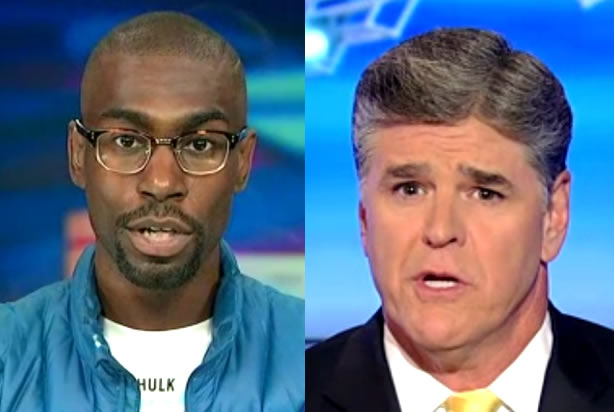Talking about “dog-whistle” politics and racially charged “code words” generates no modicum of skepticism on the right. “The only people who consistently decipher these codes or hear these dog whistles,” writes Jonah Goldberg, “are liberals themselves.” For Goldberg (sardonically), liberals have a particular “sensitivity and acuity” for spotting racism that “even real racists seem to lack.”
This critique is part of a larger characterization of the left that comes straight out of the 20th century culture wars playbook, the idea that liberals’ questioning of fixed categories (like traditional gender roles) and stable truths (like Christian soteriology) renders liberals a bunch of feelings-driven, wishy-washy pajama boys with a tenuous grasp on reality. This is why, for someone on the right, saying something is “postmodern” is tantamount to saying it’s both “a liberal thing” and “a made-up thing”; once we on the left start playing our crazy language games, men become women, white becomes black, and everything is racist.
I don’t agree with that line of thinking, but I’ll work with it for a second on its own terms. Calling someone or something racist is a serious charge, because we can all agree—well, maybe not all of us—that being a racist is a terrible thing. So when we decide to label something racist, we should be sure about it. It should be obvious. I’m not talking about “coded language” here; I’m talking about unimpeachable evidence. Consider, for example, Dylann Roof, who confessed to killing nine black churchgoers in Charleston, S.C., last Wednesday evening. What do we know about him?
We have photos of him wearing pro-apartheid flags. We have his friends and acquaintances on record saying he tells racist jokes, expresses support for segregation, wants to start a civil war, and rants about how black people have “raped our women” and are “taking over the world.” And then, of course, we have his actual confession, in which he claims he premeditatedly walked into an AME church and murdered nine people for the purposes of starting a “race war.”
So are we allowed to say now—as South Carolina Gov. Nikki Haley has finally come around to saying—that Roof has committed a hate crime, that his choice to murder nine black people in a historic black church was fundamentally an act of racism? Even with this much evidence, it remains a prominent position on the right that the Charleston shooting was not about race, and that those attempting to “make it” about race are manipulating the truth to suit a race-baiting political agenda.
In these moments we glimpse the true colors of the proponents of that position. Dylann Roof didn’t drop subtle or coded hints to friends and police about how he just couldn’t stand to eat chocolate and vanilla ice cream out of the same bowl, or was never much a fan of Trick Daddy; he said black people have “raped our women” and “are taking over the country,” and copped to murdering nine of them to try to start a race war. If you can’t accept this as evidence of a crime motivated by racism, then you simply lose all credibility in discussions of what constitutes racism.
I’m tempted to say that innocent people shouldn’t have to die to bring into relief the grotesquely cynical deception involved in denying the existence of racism in jokes and coded language as groundwork for denying the existence of racism full stop, even when racism results in mass murder. But what brings me to tears is that such a statement—innocent people shouldn’t have to die to demonstrate that racism is real—means nothing unless we actually recognize that racism is real, and do something about it. And yet, like “Voldemort” in Harry Potter, the right refuses to speak the name, as if denial of a thing has the power to destroy it.
So now we know who’s willing to turn away from evidence to suit a political agenda, who’s willing to pretend like we can never really know the truth behind Dylann Roof’s racist words. But unlike those who, in good faith, muddle through the material and psychological challenges posed by gender and race, the right’s sudden embracing of the instability of language and the complexities of human subjectivity when it comes to the non-question of Roof’s motivations is nakedly disingenuous. It’s soft posturing deserving of the rightist epithet “postmodern,” and commensurate with the lack of understanding of that very term.
This is the crux, then: it matters that language can be slippery, identity perplexing, and intentions multifaceted. It’s one thing to grapple with the hard stuff; it’s entirely another to stare, dumbfounded, at the easy stuff and pretend like you don’t understand. When a man says he killed nine black people to start a race war—and that man isn’t a character in a Philip Roth novel—you grant yourself the racism angle and move onto figuring out how to prevent something like this from ever happening again.

